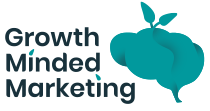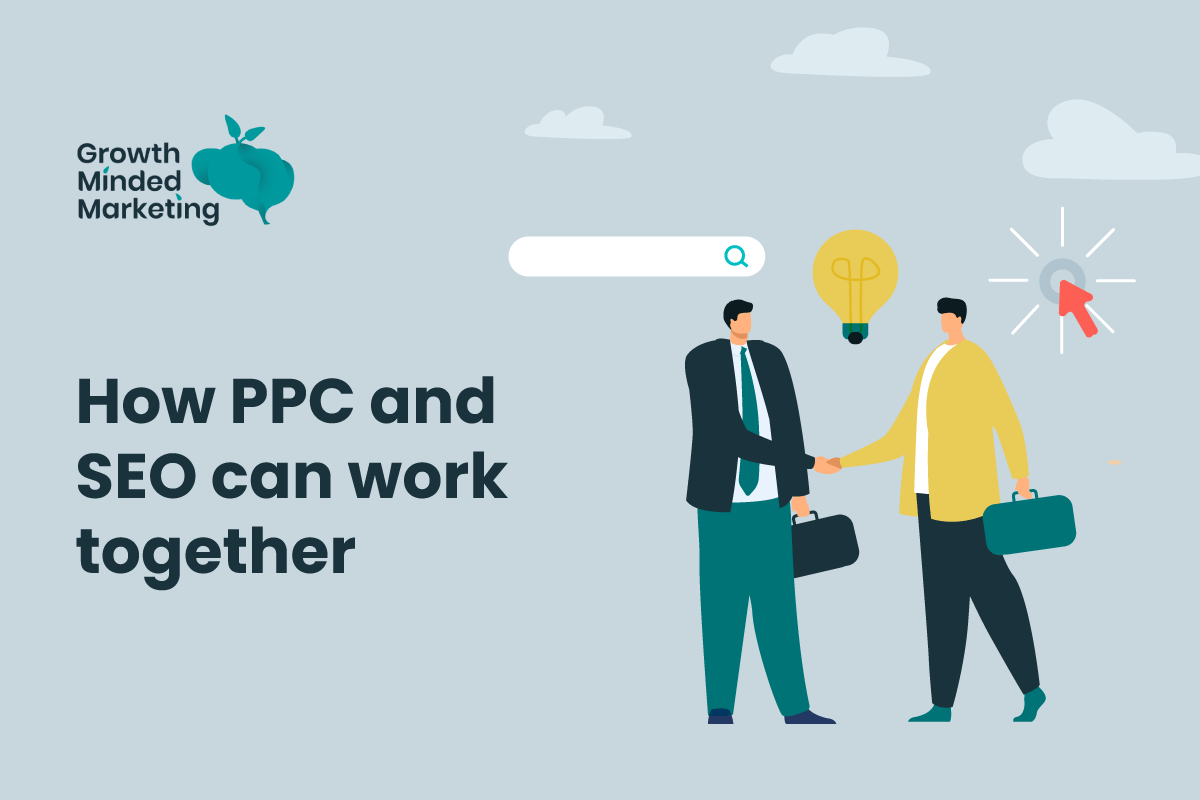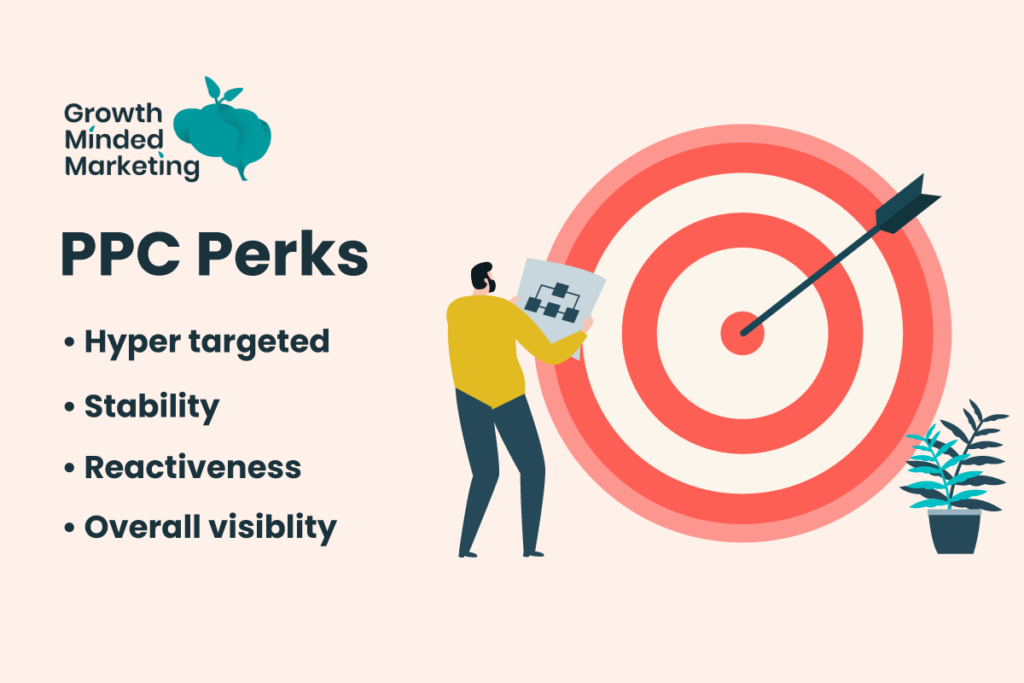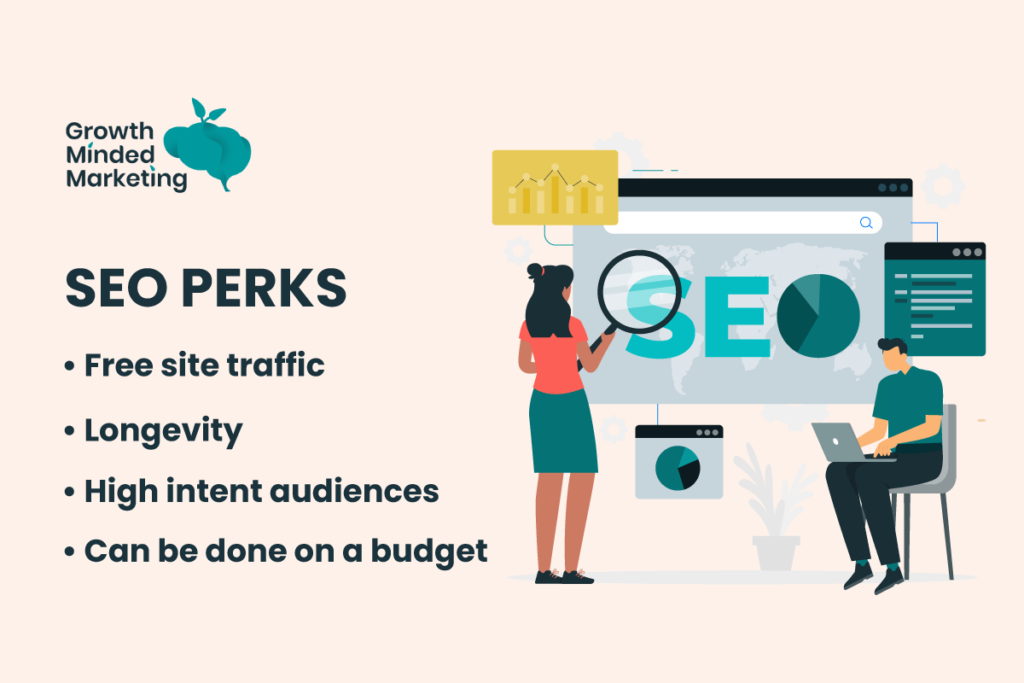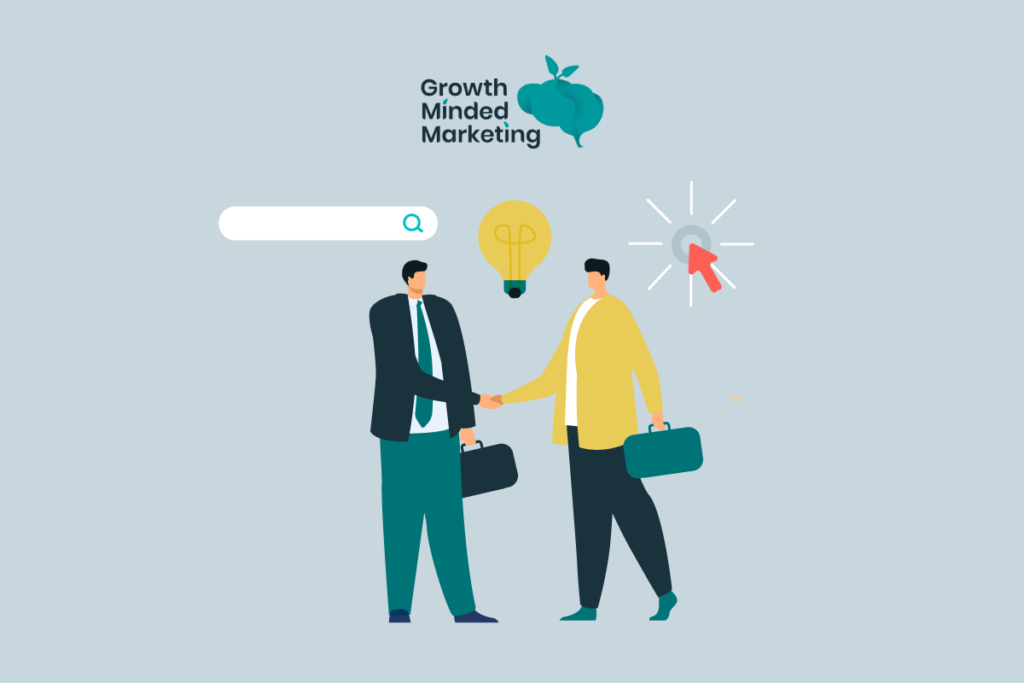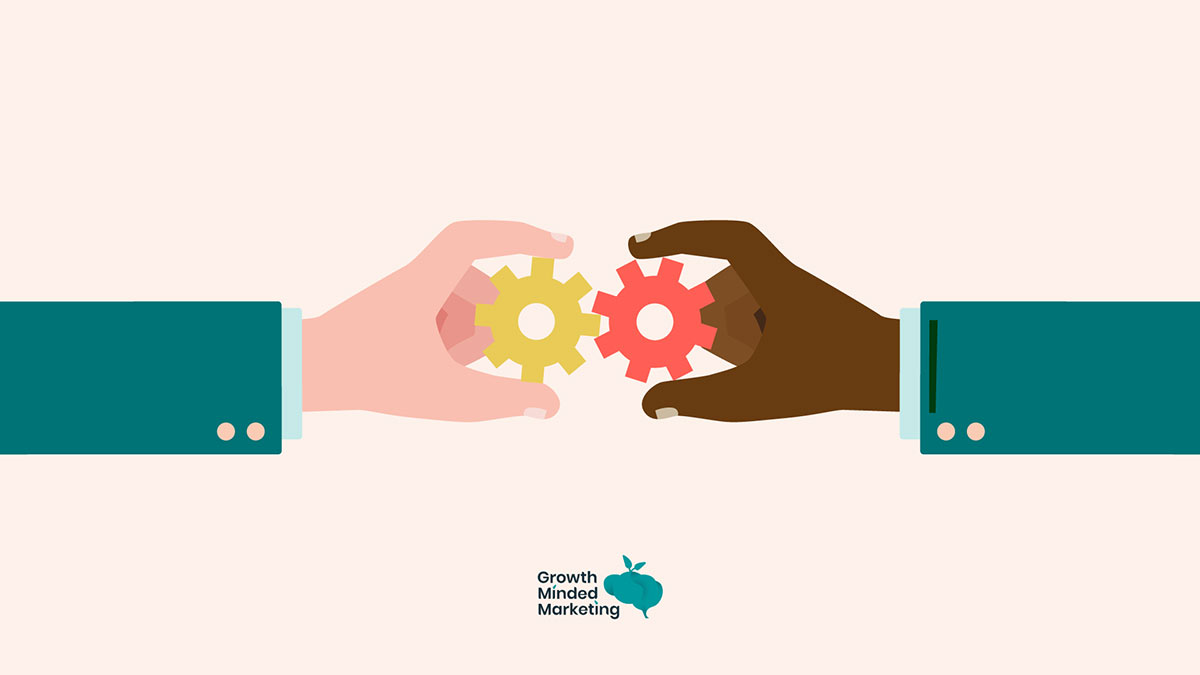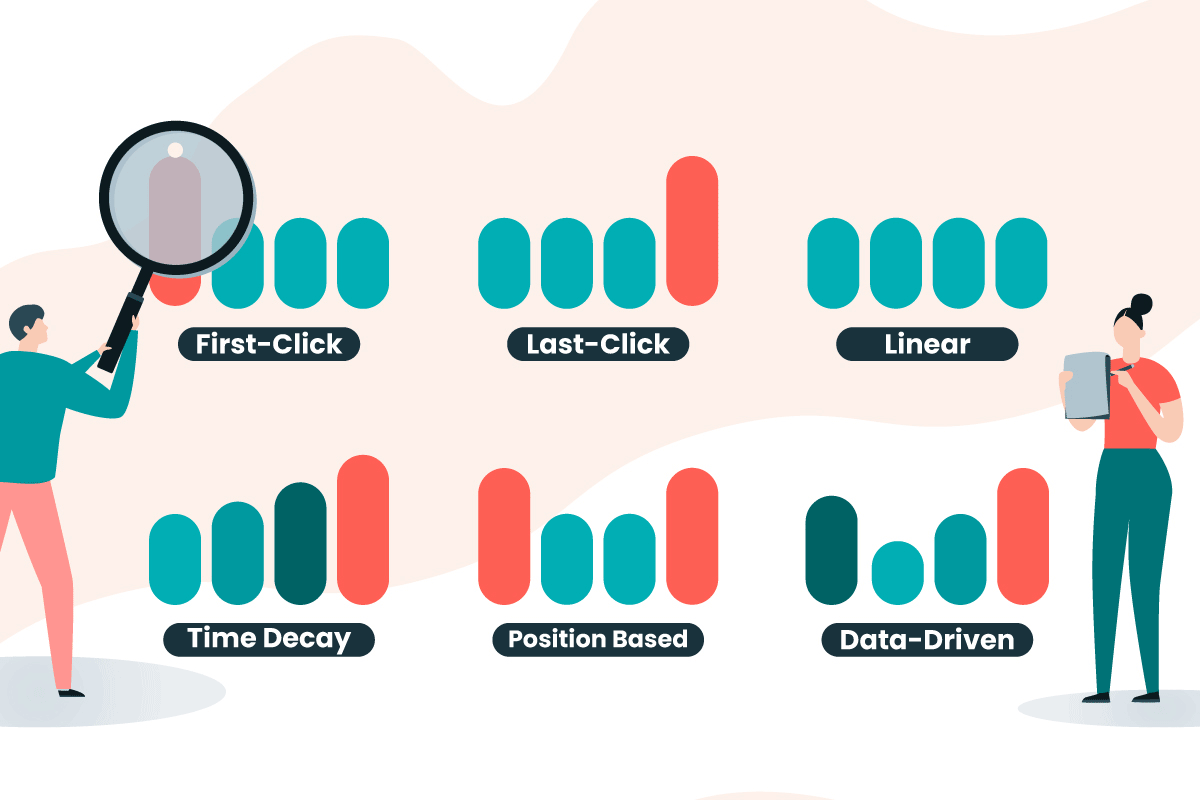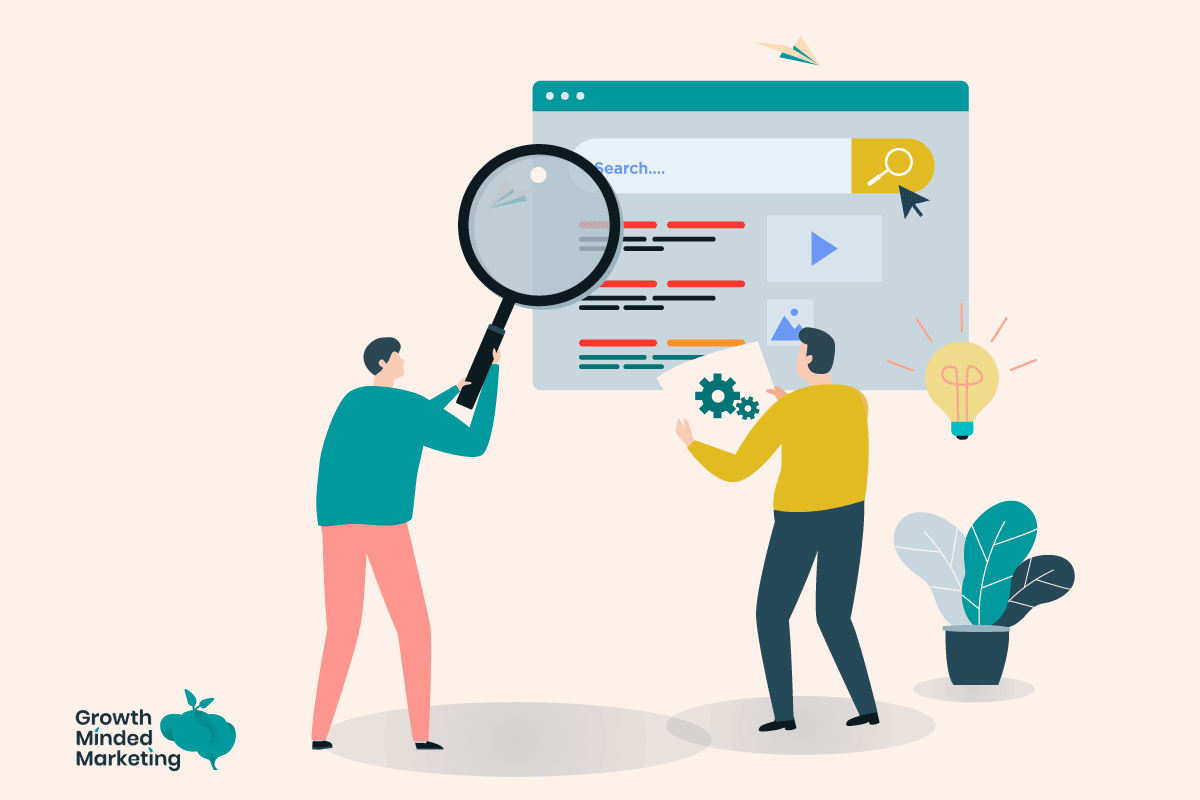Whether in-house or agency, the PPC and SEO departmental beef is age-old and ever-present.
Putting aside the keyword cannibalisation concerns, the brand bidding debates, and the attribution arguments – SEO and PPC working together can create the ultimate marketing machine, helping promote brand awareness at all stages of the user consideration funnel.
Table of Contents
ToggleAs a SEO and PPC agency, we know that when SEO services and Google Ads management are integrated fully into a cohesive strategy, it can help brands and businesses achieve much better results than relying solely on the individual channels.
Too busy to read this amazing post?? Watch the 7min video instead! 👇 👇 👇
Let’s quickly recap of SEO vs PPC and their strong points.
PPC Perks: Hyper-targeted
Stability
With PPC you’ll ride the wave of sweeping Google search engine algorithm updates and be largely unaffected, while your organic rankings might take a hit and struggle to recover.
There are several factors that affect overall stability in Google Ads, like your budget and competition – but generally, you can overcome these issues quickly and easily.
Reactiveness
You can create a PPC campaign and be up and running very quickly, dominating top positions in the search results page (SERPS) for your target keywords very quickly.
If you have a sale, service discount, or seasonal product offering, you can whip up a laser-focused ad in the time it takes to say “Take my money Google!”
Find out how our PPC and SEO management services can help your business grow.
Targeting Options
PPC allows for super-granular targeting to put your ad in front of your ideal customer.
Age, gender, location, device, household income, parental status, in-market purchase intent, affinity interests and more are baked into Google Ads as standard and help ensure you’re not wasting your money promoting your product or service to a user unlikely to be interested in your offering.
Testing Capability
You can easily A/B test and measure ad text, imagery, and promotions on a variety of demographics through the targeting mention above.
You can increase spend on profitable keywords for particular segments and dial back on poor performers. You can create bidding strategy experiments and basically optimise and test to your heart’s content.
Overall visibility
In terms of visibility, Google Ads can show ad creative across a lot of Google’s properties:
- text ads on the Search network
- visual product listings on Google Shopping
- visual ad creative across millions of websites on the Google Display Network (GDN)
- videos and other ad formats on YouTube.
That’s a lot of visibility.
SEO: Organic traffic to your website
Free* site traffic
Once discovered and indexed by Google, websites will get clicks from the search results page based on the keywords on your site pages.
*The misconception is that SEO is free. Do some keyword research, throw up some blog posts, optimise some page titles and you’re done…
The reality is that for competitive keywords and industries, high ranking competitors are likely investing heavily in their SEO strategy through content production, technical SEO fixes, link building and PR – all with big costs attached.
Longevity
Organic Google rankings will stay around long after PPC campaigns are switched off. (as long as you’re not doing anything too naughty). Rankings may decline over time, but you’ll still be visible.
Costs
Theoretically, if you were to do all your websites SEO yourself, and not use expensive keyword tools and trackers etc, the only cost you’ll face is time.
SEO can be done on a very tight budget or non-hesitant budget if you did all the work yourself – but remember you tend to get what you pay for…
Higher CTRs
Generally, organic search results see higher CTRs (click-through rates) than PPC ads. You’re more likely to see a better CTR from top Organic search ranking than a top position PPC ad.
So How Can PPC and SEO Work Together?
Now we’re clearer on the perks and benefits of both PPC & SEO, let’s look at examples strategies and ideas of how PPC & SEO can work together.
1. Remarketing and funnel stage targeting
Broadly, remarketing is showing a PPC ad to someone who’s already visited your site.
The more people who visit your site, the larger your audience sizes to target via PPC.
Here are a couple of examples of PPC and SEO working together:
Example 1: You sell diamond-encrusted fidget spinners.
- The user clicks on your blog post about ‘insanely expensive toys’ via an organic Google search listing. They read the blog post, then they check out the £1,500 fidget spinner, and finally leave the site.
- A week later the user sees an ad about a 15% off summer sale you’re running sitewide. They Google the brand name, click the organic results to find how much the fidget spinner costs now. They add it to the cart to calculate the shipping cost, then leave.
- A day later they see another ad with a 20% discount specifically for the fidget spinner! Their mind is blown, they click the ad and finally purchase – feeling excited and fuzzy about the gizmo they’ll receive.
Example 2: You own a project management SaaS tool.
- The user clicks on a blog post about ‘how to better manage time at work’ from an organic search listing, then leaves.
- A day later they see an ad about signing up for a 30-day free trial, they click and sign up.
- 29 days later after using the tool, they Google ‘Asana pricing’ to get an idea about competitor pricing. The first thing they see is our remarketing PPC ad promoting your site with a 25% annual discount if they sign up right now, as well as communicating why you’re better (and cheaper) than Asana.
You get the picture.
Both SEO and PPC had a hand in the conversion and aided each other in the overall conversion path.
2. PPC as a platform for keyword strategy and CTR testing
Google Ads is the perfect place to trial run a keyword strategy.
Ad CTR testing and other A/B tests can be experimented with to find winners and losers before rolling out and implementing a potentially more costly (and terrifying) organic keyword strategy.
From a PPC perspective, Google Search Console is a great place for keyword inspiration.
Organically, the site might be ranking for terms you’ve not discovered or thought of that you can layer into your PPC efforts.
Find out how our PPC and SEO management services can help your business grow.
3. Focusing on underperforming or new segments
Good organic rankings are rarely consistent across all products or service types on a website.
Ie. Your ‘Red shoe’ product category or ‘Office removals’ service page may rank much lower than the ‘Yellow shoe’ or ‘Home removal’ pages.
The same goes for new products or services.
With PPC you can focus on the new segments while waiting for the Google Gods to index you organically.
(Don’t forget to remarket to your past, loyal customers while you’re at it)
4. Pulling budget from high performing organic segments
If you’re seeing stellar organic results in one area of the website, you can be defensive and dial back on PPC efforts there and allocate budget towards lower ranking terms – or double down and go for full SERP Organic/Paid visibility dominance.
We’ve created a tool especially for this called the ‘Organic vs Paid Keyword Analysis Tool’.
It’s a tool that analyses keyword data from Google Ads, Search Console and Google Analytics to look at your keyword performance across Organic and Paid target keywords and checks for cannibalisation and overall market share.
Oh, and it’s free.
5. Search term analysis
Google Ads search terms across Search and Shopping campaigns are shown along with CTR, Conversion rate, ROAS, and other revenue figures – all actionable data for the SEO team to leverage into their on-page SEO strategies.
We say to our clients that there’s no such thing as a wasted click.
Every click informs us more about our target customer, their search intent, and what problem they’re trying to solve.
6. More clicks volume overall
Running both PPC and SEO together will lead to more overall click volume to the site, growing brand awareness along the way.
So there we have it. SEO and PPC work great alone in isolation but can be phenomenal together when part of a combined strategy to complement each other.
If you have any questions about how a well-managed Google Ads campaign can fit into your existing digital strategy and help grow your revenue, then please get in touch. And don’t forget to share if you found this helpful 🙂

Find out how our PPC and SEO management services can help your business grow.
